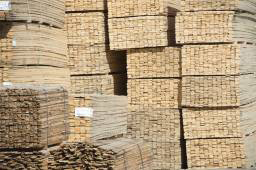Wednesday, April 3, 2019 ~ VICTORIA, BC
by Mary P Brooke | West Shore Voice News
A new economic study released today by the BC Council of Forest Industries (COFI) finds that the BC forest industry generates significant economic activity and employment in every region of the province – with 140,000 jobs employing British Columbians in urban and rural communities alike.

The report, conducted by PwC, assesses the economic impact of the forest industry in seven regions of B.C. as defined by Statistics Canada, as well as employment rates of B.C.’s Indigenous population in forestry. It provides a region-by-region overview of jobs, economic activity, and forestry activities, highlighting how the 140,000 jobs are distributed, and how they contribute to the health and economic prosperity of communities throughout British Columbia.
In the Vancouver Island and coastal region, the forest industry supports 21,310 jobs. Of those, 9,621 are direct, with 5,859 indirect and 5,830 induced. The 21,310 jobs represent 6% of the entire workforce of 366,500 in the region. The economic impact by forest industry workers in the Vancouver Island-Coast region is $1.4 million. Total government revenue is $679 million from forestry in this region. Forestry is the largest resource sector in the Vancouver Island-Coast region. There are seven pulp and paper mills, four of which produce only market pulp and three others that produce paper. The region has the highest pulp and paper capacity in BC, at 39%.

“B.C.’s forest industry has long been the cornerstone of the provincial economy and one of the largest employers in the province,” said Susan Yurkovich, President & CEO of the BC Council of Forest Industries. “This new study confirms that not only does the forest industry generate significant jobs and economic activity for the province overall, but these benefits can be found in every corner of the province – from Vancouver Island to the Interior, Lower Mainland to the Kootenays, and North Coast, Okanagan and Northeast regions of the province.”
The study notes that forestry is highly interdependent across B.C. with partially processed or finished goods flowing between regions, generating economic impact across the province. It highlights that in five of the seven regions, forestry jobs account for 8% to 22% of total jobs in the region (Cariboo, Kootenays, Northeast, North Coast & Nechako, and Thompson-Okanagan), and generates one in five jobs in three regions: Cariboo (22%), Northeast (20%) and North Coast & Nechako (19%).
Importantly, the study also found 5,315 Indigenous workers are directly employed in the forest industry in B.C. making up about 9% of the workforce, or 1 in 11 direct jobs. This level of employment is more than in any other resource sector in B.C. In addition to working directly in forestry and manufacturing jobs, Indigenous participation in the forest sector is strong in the contracting sector, including activities such as logging, construction, silviculture, firefighting and professional services.
“Forestry provides jobs to people all around the province and helps drive our provincial economy,” said Forests, Lands, Natural Resource Operations and Rural Development Minister Doug Donaldson. “This government is committed to working with communities and industry to support jobs in this important sector.”
Interestingly, while many communities outside the Lower Mainland are forestry-dependent, more than 40% of the province’s overall forest industry jobs are in the Lower Mainland/Southwest region, reflecting the proximity of the Lower Mainland to major ports and the large US market, as well as manufacturing activities, suppliers, and professional services.
B.C.’s forest industry is a leading supplier of high-quality, environmentally responsible forest products to countries around the world. Current challenges and opportunities in global trade, and their impact on the sector and forestry-dependent communities throughout the province, will be high on the agenda at the 2019 COFI Convention, which takes place April 3-5 at the JW Marriott Parq Vancouver Hotel & Conference Centre in Vancouver.
The PwC report includes a series of case studies highlighting the integrated nature of the industry, sustainability, mitigating climate change, the diversity of products produced from both family-owned to global forest product companies, and more.
“While this study demonstrates once again that the forest industry continues to be an economic engine for our province, we are also an industry that is facing significant challenges, including rising fibre costs, ongoing trade headwinds and strong global competition,” added Yurkovich.
“These challenges are complex and require the collective effort of governments, industry and communities working together to ensure that we find our way past them in a way that ensures the industry can continue to support the good family-supporting jobs and economic activity across B.C.”



